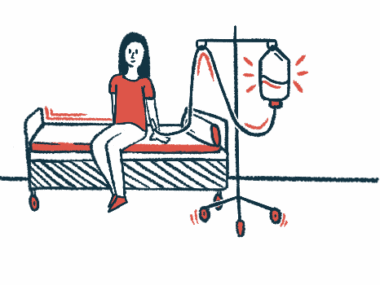Why is asking questions important for CAD patients?
The short answer: Without questions, there are no answers!
Written by |

Way back in 1974, my now husband, Mike, asked me a question as we waited for the beginning of our next class at Auburn University in Alabama. He started off by telling me of his plans for the upcoming weekend. We were both music majors, and after about five minutes of telling me about his practice times and how long he’d spend arranging some music, he told me he planned on attending a party. Then he waited.
I, too, waited. Slowly, it dawned on me: He expected an answer from me.
“Wait, are you asking me on a date?” I was confused because he wasn’t being clear about it.
Questions are very important. They are especially important when you have cold agglutinin disease (CAD).
CAD is a rare autoimmune disorder in which self-targeting antibodies attack and destroy red blood cells at low temperatures. This rarity means that little research has been done and there is more to discover. It is important that we “CADdies,” as those of us with CAD call ourselves, ask questions — over and over — to find answers.
Our questions range from a quest for basic information to more specific details about lab results. My medical team encourages me to ask questions, but I have two difficulties with doing that: The first is simply because the questions don’t occur to me during my appointments. The second is due to a scarcity of information.
Common questions
A common question I see is, “Do I need additional iron?”
The answer is, “Probably not.” The explanation is that most CAD patients have too much iron. CAD is not an iron deficiency. Rather, it’s due to our red blood cells being killed off. When we have a normal intake of iron and not enough red blood cells to handle it, the iron goes to our liver, pancreas, and other organs. There, it causes trouble.
Other questions concern bone marrow biopsies. Those are not fun. No one gets up in the morning and thinks, “It’ll be fun to have a metal, handheld auger drilled into my hip and then have a portion of my bone marrow scooped out.” Nonetheless, it is one of the best ways for diagnosing whether CAD is associated with lymphoma. I had one in 2016. It didn’t kill me.
I have frequent urinary tract infections
I’m also frequently wondering if I’m experiencing hemolysis (when red blood cells are destroyed) or a urinary tract infection (UTI). This is primarily a question for my medical team. But, if I went to a doctor as often as I think this, I’d immediately double my medical expenses! I take a watch-and-wait attitude. I treat myself with cranberry juice and wait.
Specific symptoms I wait for include pain during urination. If present, is it getting worse? I also monitor the feeling of needing to urinate. Is it more frequent and do I need to urinate or is it just a feeling of urgency?
Finally, I look for blood in my urine. When I am “just” hemolyzing, my urine has a slight tinge of pink, salmon, or peach color. If it is a UTI, more red is present. The underlying rule I have if I suspect a UTI — contrast that with “wonder” — is that I go to an urgent care facility or the emergency room.
Finally, I always have questions about my blood labs. Was the blood handled correctly? Was a specific test done? Why or why not? What do those results mean?
Trust and verify
We CADdies have a medical team. Ask them questions. Do research on the internet! When I don’t understand something I read, I first check the source to see how reliable it is. Next, I dig deeper and ask again.
One year, during the interim period between a blood draw and a doctor’s interpretation of the lab results, I became concerned that things had worsened again. The numbers I’d seen in one area and what I read during my internet research were not what I wished. I waited by the phone.
Finally, when the doctor’s office called, the word was that I had no substantive change. They would see me again in a year. When that year rolled around, I asked about those specific anomalies. I learned more about my disease and how treatment is decided.
Asking specific questions about test results and what we experience is the only way to ensure our disease is being fully addressed. CAD is complex. Through research and discussion with our medical teams and fellow CADdies, more people can understand it while better treatments are developed.
Note: Cold Agglutinin Disease News is strictly a news and information website about the disease. It does not provide medical advice, diagnosis, or treatment. This content is not intended to be a substitute for professional medical advice, diagnosis, or treatment. Always seek the advice of your physician or other qualified health provider with any questions you may have regarding a medical condition. Never disregard professional medical advice or delay in seeking it because of something you have read on this website. The opinions expressed in this column are not those of Cold Agglutinin Disease News or its parent company, Bionews, and are intended to spark discussion about issues pertaining to cold agglutinin disease.







Linda Daniel
Hello, Mary, I really appreciate all your articles but this one about UTI's is especially interesting to me because I have begun to have frequent UTI's this year. Recently I was beginning to doubt my self diagnosis because one day I would have symptoms and then none the next day. I have had three confirmed UTI,s in the last four months. Now I am like you, I take a wait and see attitude before going to the doctor and so far the symptoms have occurred off and on but have not been consistent. This pattern tells me it probably is not an infection at this time but I will not hesitate to see the doctor if symptoms persist. It is helpful to know that hemolysis can also cause some symptoms of UTI.